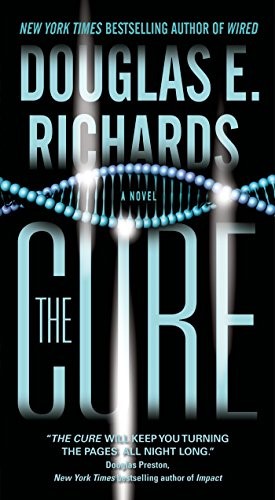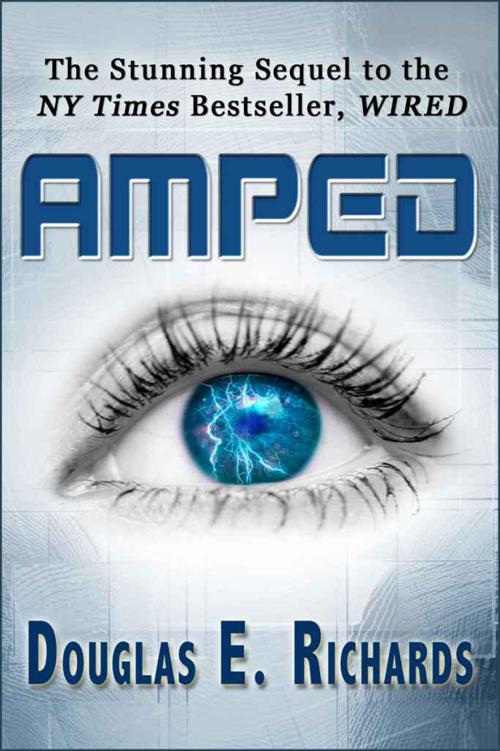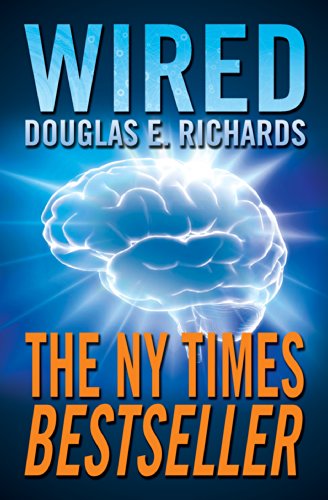

It started slow, that's a valid gripe - or slow for Douglas E. Richards. He usually starts with something like pulling the rip cord and the parachute lines tangle. The jumper fails to cut away the tangled parachute and in a panic deploys the back up which only tangles things up further. Petty intense.
This one does start with some traumatically cringe-worthy psychopathic brutality and only one surviving child, who is our protagonist. So my slow argument doesn't really hold up very well. But that's just shoving you in the door. Once you're in the book, you're waiting for grandma to make the tea… there's the fuss about Earl Grey or Cinnamon Apple… boring... metaphorically. Then Erin, our traumatic surviving child has grown up. She has overcome the massive trauma and is now studying psychopathy. It's about that time you think you've figured out where Mr. Richards is going with "The Cure".
You'll be wrong. He does some writer "magic tricks."
While you're looking at the "cure psychopathy" presumption, he changes where you're not looking. When you turn the page you're rubbing your chin thinking, well..., ok..., didn't think it would go that way.
 I recommend Amped which is another 4-5 star Sci-fi thriller by Douglas E. Richards that reads so fast its 350+ pages seem like a short story. Mystery has been one of the factors Mr. Richards loves to weave into his action, adventure, Sci-fi thrillers. In that way he reminds me much of Isaac Asimov and his way to "teaching" through the dialogue of his characters reminds me of Robert Heinlein.
I recommend Amped which is another 4-5 star Sci-fi thriller by Douglas E. Richards that reads so fast its 350+ pages seem like a short story. Mystery has been one of the factors Mr. Richards loves to weave into his action, adventure, Sci-fi thrillers. In that way he reminds me much of Isaac Asimov and his way to "teaching" through the dialogue of his characters reminds me of Robert Heinlein.  What I probably liked best about his 4-5 star science fiction story is that it hints of golden age Heinlein or Asimov while skipping the golden age's glaring foibles. In those days, science fiction writers were often like having teachers of future science telling you an exciting story about how it will be, THEN. That, and I think Mr. Richards wants to test the idea of how long he can get a reader to hold their breath.
What I probably liked best about his 4-5 star science fiction story is that it hints of golden age Heinlein or Asimov while skipping the golden age's glaring foibles. In those days, science fiction writers were often like having teachers of future science telling you an exciting story about how it will be, THEN. That, and I think Mr. Richards wants to test the idea of how long he can get a reader to hold their breath.